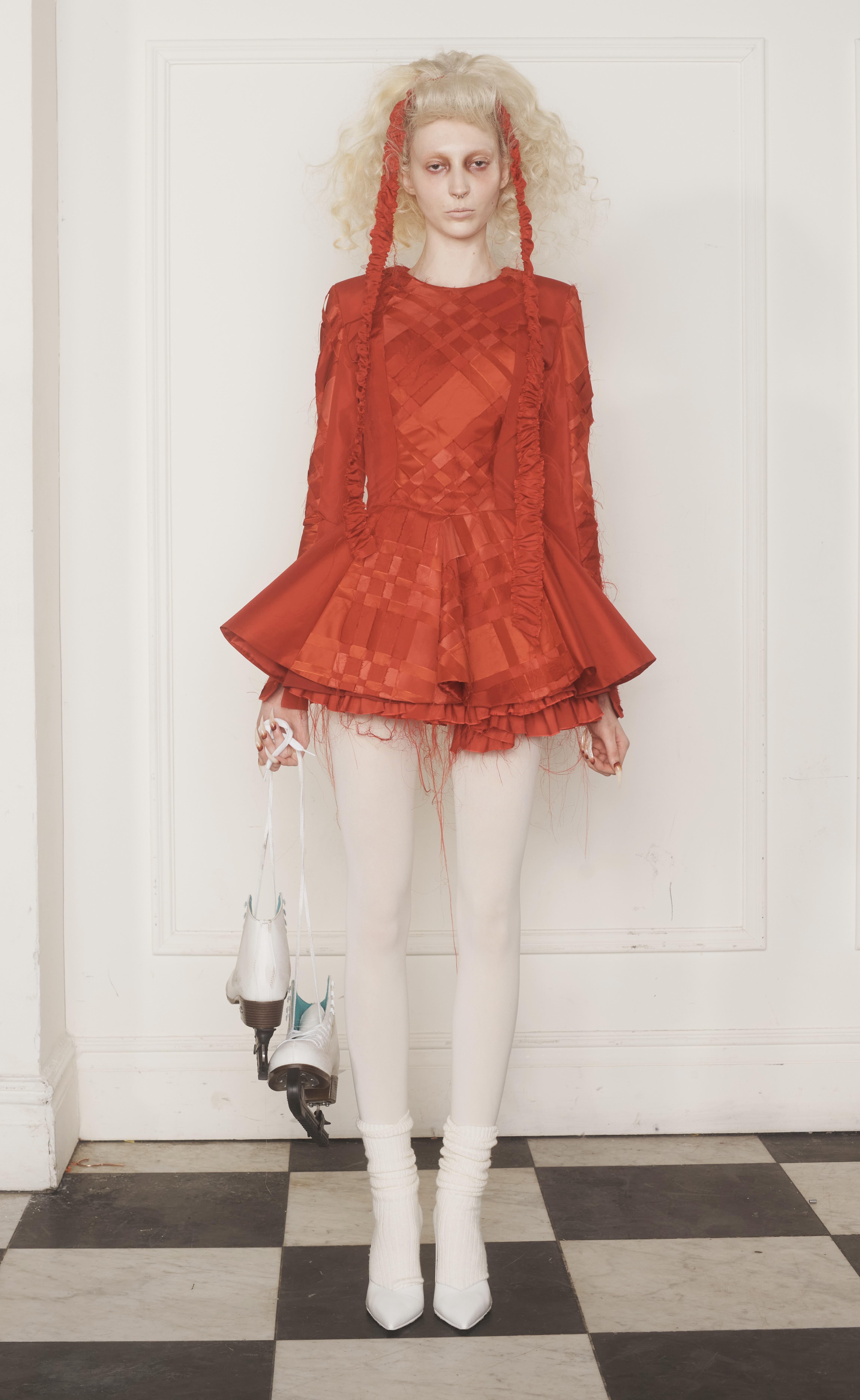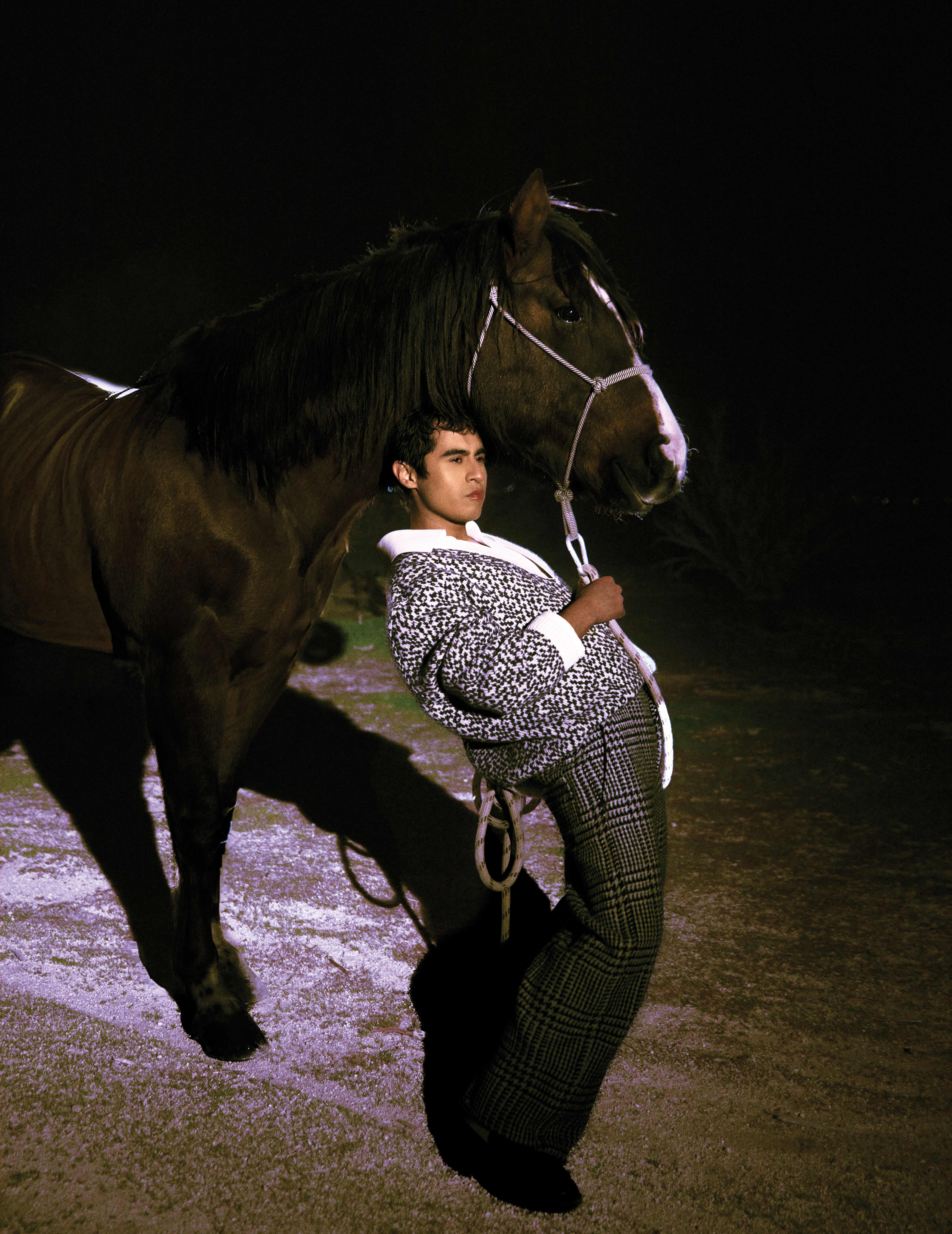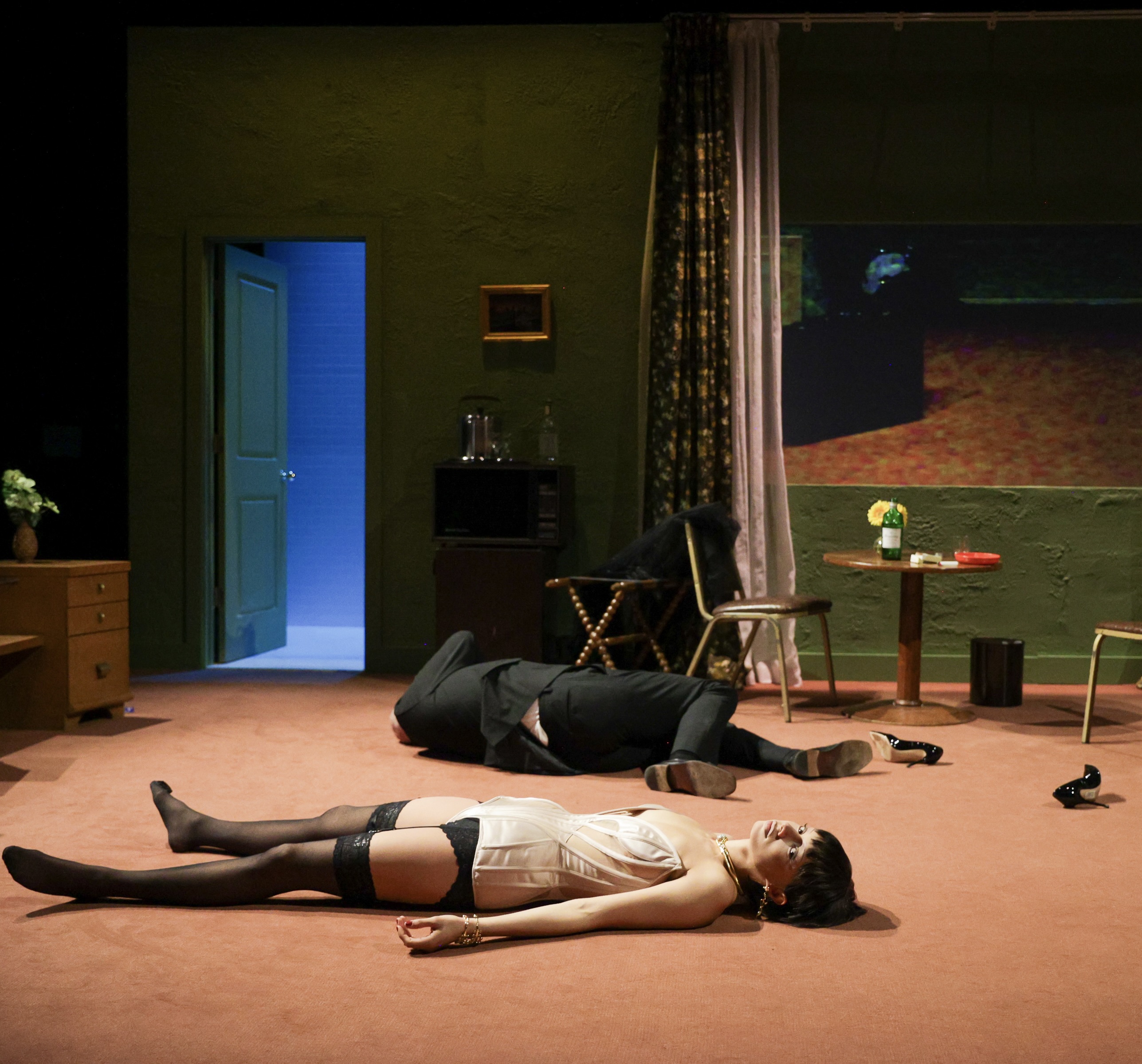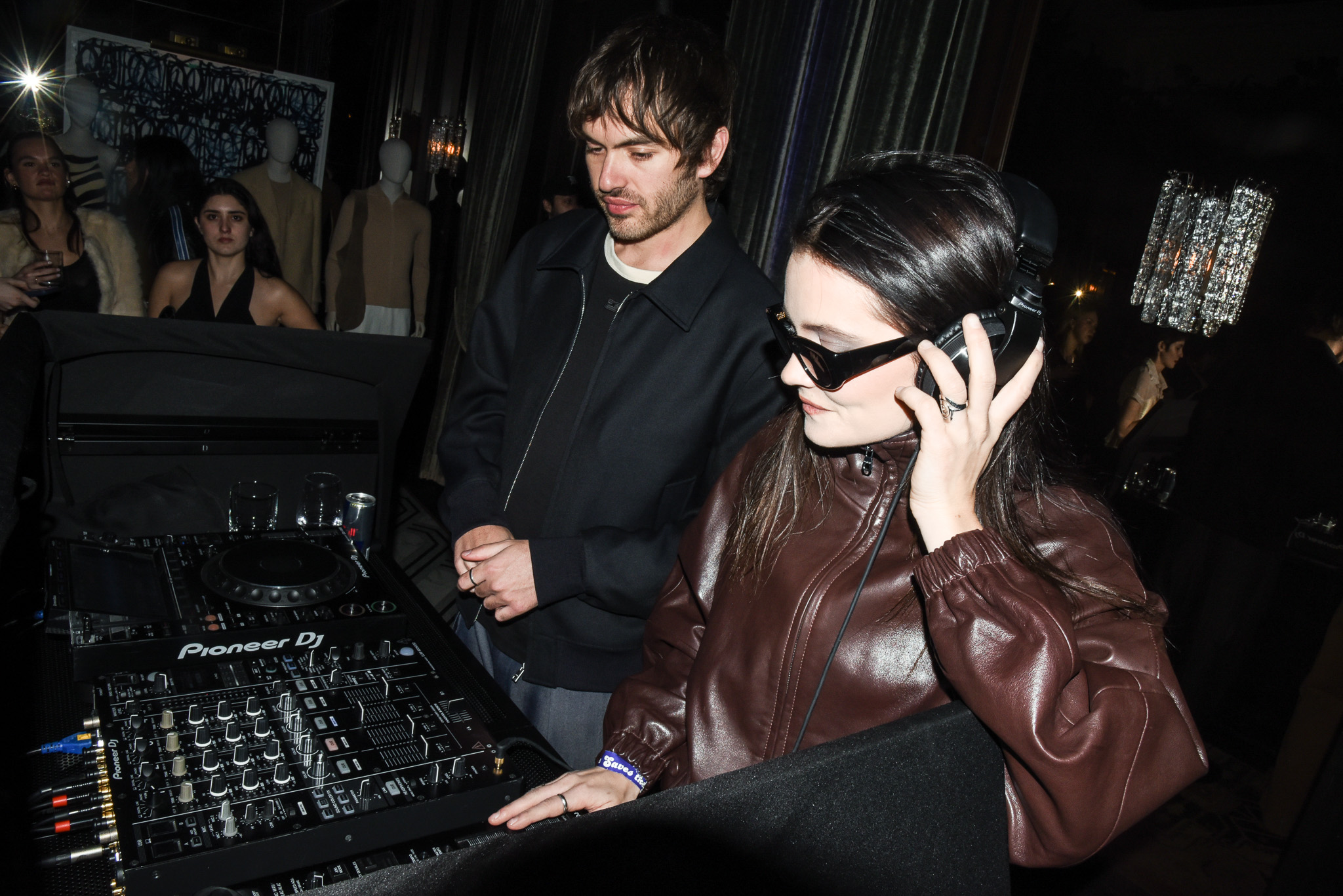

Eddie Ruscha | photo by Eddie Chacon
* * *
Eddie Ruscha just dropped his latest album, a slow-winding moody collection called _Who Are You_ (Beats in Space Records). But he's no stranger to us. The Los Angeles musician is decades deep in the game, producing tracks that pack dance clubs and his latest effort is a thoughtful, mellow step in a new direction.
Here, we talk to Ruscha about understated cool, the origin of the album title, where his mind wandered when creating _Who Are You_, and more.
* * *
**What is the value of understatement?**
**Eddie Ruscha:** In this day and age I feel there is a need to step back a bit from the onslaught of information. Everything seems to be designed to be immediate and quickly absorbed. That's part of the reason I feel like a bit of the human touch needs to be presented. In a lot of electronic music, and most popular music for that matter, the human touch is erased and not that that's a bad thing by any stretch, it's just that for me, with this particular record, I wanted that part to shine whether it was emotionally or through slight human error or even the feeling of touch. If you listen to any Led Zeppelin or Jimi Hendrix album you can hear little mistakes that nowadays would be immediately corrected and I find that the ear actually likes to hear those things. Now they almost seem holy and super charged with energy.
**If your music was a place, where would it be and how come?**
Often times when I'm making music I'm really searching for someplace new or uncharted in terms of mood or place, however this particular record I do feel has an attachment to natural surroundings. An outdoor type of experience perhaps. It can even be transportive if you were to close your eyes and listen with headphones from your couch. It's another thing I find to be undervalued a bit. Just letting go to something simpler and more dialed in to how we as humans operate. There's something deep inside every person that has existed since we crawled out of the water and it could be merely survival instinct or any shade of that that still remains in our core. The simple act of watching a cloud or a sunset or the sun move across a mountain can do something exquisite to the soul.
**What's behind the title, _Who Are You?_**
I felt it tied the record together in an involving way. It was a way of almost saying, "this is what I've made, nice to meet you, and who are you? How do you fit in and react to this music?" Almost an introduction which is how humans react to one another and build relationships. I didn't use a question mark because I wanted it to be suspended without direction and to create a sense of floating.
**Reviews have often cited "Balearic Beat" as a detectable influence in your new album. Would you agree? What, if anything, attracts you to this feel?**
The balearic tag is something that has been applied to my music for whatever reason over time and I believe it mostly comes from the feeling in it. It can be seen as a kind of letting go as often these experiences are had during a vacation from a cold grey territory so a bit of the essence of the genre lies in that feeling of openness as well as the ocean and sun and the night life of course.
The genre is also fairly wide as it covers everything from Spanish folk to acid house but there also seems to be a search for beauty or the ecstatic in it as well. Los Angeles is also a place where the ocean touches and the sun is usually having it's effect and so perhaps this has an influence on all of my music.
**How has your perspective on music-making changed since _Tactile Galactics_ came out in 2013?**
I still do many things that are in line with that sound and most likely always will. If I were to DJ or perform I would always include elements of that because a groove is a great template to have many amazing things happen. If there is something carrying a listener or a crowd along, the music can get as far out there as you want to bring it. That said this new record is a bit more focused on the melodic side as opposed to the rhythmic side.
**You've worked under a number of different names as an artist. Does taking on a new name help you reinvent your sound?**
I've always loved when artists used different names or aliases to release music. It's a way of looking at the music through a different window. I think by using my real name it asks the listener to look at it as coming from a human being rather than a mythical figure. It was a bit of a hurdle to jump over for me because I always find myself sliding toward the obscuring of the artist. It's almost easier to become a character in a movie and don a persona and this can be inspiring in different ways. I wanted to peel some of that away for this project and let it stand on it's own a bit.
**Do you have a particular synth that remains a favorite? Or a favorite story behind a synth in your collection?**
So many are favorites for various reasons but right now I'm very tied to the Yamaha CS60. You can't run it with a sequencer or computer, you have to play it by hand and if you set it correctly every time you strike a key it can sound different from note to note so it has a very human level of involvement and outcome. The sounds are also extremely rich going from very musical to otherworldly. For a good while I had a CS80 in my studio on loan. It's one of the more unattainable synths in the world due to it's price, I would say. It's of course the one Vangelis used for the soundtrack of _Blade Runner_. I used it quite a bit on _Who Are You_. My friend had to finally take it back so I secured the slightly less desirable CS60 because I couldn't stand not to have that element gone from my studio. It definitely does the job.
 
Eddie Ruscha | photo by Eddie Chacon
* * *
Eddie Ruscha just dropped his latest album, a slow-winding moody collection called _Who Are You_ (Beats in Space Records). But he's no stranger to us. The Los Angeles musician is decades deep in the game, producing tracks that pack dance clubs and his latest effort is a thoughtful, mellow step in a new direction.
Here, we talk to Ruscha about understated cool, the origin of the album title, where his mind wandered when creating _Who Are You_, and more.
* * *
**What is the value of understatement?**
**Eddie Ruscha:** In this day and age I feel there is a need to step back a bit from the onslaught of information. Everything seems to be designed to be immediate and quickly absorbed. That's part of the reason I feel like a bit of the human touch needs to be presented. In a lot of electronic music, and most popular music for that matter, the human touch is erased and not that that's a bad thing by any stretch, it's just that for me, with this particular record, I wanted that part to shine whether it was emotionally or through slight human error or even the feeling of touch. If you listen to any Led Zeppelin or Jimi Hendrix album you can hear little mistakes that nowadays would be immediately corrected and I find that the ear actually likes to hear those things. Now they almost seem holy and super charged with energy.
**If your music was a place, where would it be and how come?**
Often times when I'm making music I'm really searching for someplace new or uncharted in terms of mood or place, however this particular record I do feel has an attachment to natural surroundings. An outdoor type of experience perhaps. It can even be transportive if you were to close your eyes and listen with headphones from your couch. It's another thing I find to be undervalued a bit. Just letting go to something simpler and more dialed in to how we as humans operate. There's something deep inside every person that has existed since we crawled out of the water and it could be merely survival instinct or any shade of that that still remains in our core. The simple act of watching a cloud or a sunset or the sun move across a mountain can do something exquisite to the soul.
**What's behind the title, _Who Are You?_**
I felt it tied the record together in an involving way. It was a way of almost saying, "this is what I've made, nice to meet you, and who are you? How do you fit in and react to this music?" Almost an introduction which is how humans react to one another and build relationships. I didn't use a question mark because I wanted it to be suspended without direction and to create a sense of floating.
**Reviews have often cited "Balearic Beat" as a detectable influence in your new album. Would you agree? What, if anything, attracts you to this feel?**
The balearic tag is something that has been applied to my music for whatever reason over time and I believe it mostly comes from the feeling in it. It can be seen as a kind of letting go as often these experiences are had during a vacation from a cold grey territory so a bit of the essence of the genre lies in that feeling of openness as well as the ocean and sun and the night life of course.
The genre is also fairly wide as it covers everything from Spanish folk to acid house but there also seems to be a search for beauty or the ecstatic in it as well. Los Angeles is also a place where the ocean touches and the sun is usually having it's effect and so perhaps this has an influence on all of my music.
**How has your perspective on music-making changed since _Tactile Galactics_ came out in 2013?**
I still do many things that are in line with that sound and most likely always will. If I were to DJ or perform I would always include elements of that because a groove is a great template to have many amazing things happen. If there is something carrying a listener or a crowd along, the music can get as far out there as you want to bring it. That said this new record is a bit more focused on the melodic side as opposed to the rhythmic side.
**You've worked under a number of different names as an artist. Does taking on a new name help you reinvent your sound?**
I've always loved when artists used different names or aliases to release music. It's a way of looking at the music through a different window. I think by using my real name it asks the listener to look at it as coming from a human being rather than a mythical figure. It was a bit of a hurdle to jump over for me because I always find myself sliding toward the obscuring of the artist. It's almost easier to become a character in a movie and don a persona and this can be inspiring in different ways. I wanted to peel some of that away for this project and let it stand on it's own a bit.
**Do you have a particular synth that remains a favorite? Or a favorite story behind a synth in your collection?**
So many are favorites for various reasons but right now I'm very tied to the Yamaha CS60. You can't run it with a sequencer or computer, you have to play it by hand and if you set it correctly every time you strike a key it can sound different from note to note so it has a very human level of involvement and outcome. The sounds are also extremely rich going from very musical to otherworldly. For a good while I had a CS80 in my studio on loan. It's one of the more unattainable synths in the world due to it's price, I would say. It's of course the one Vangelis used for the soundtrack of _Blade Runner_. I used it quite a bit on _Who Are You_. My friend had to finally take it back so I secured the slightly less desirable CS60 because I couldn't stand not to have that element gone from my studio. It definitely does the job.

Eddie Ruscha | photo by Eddie Chacon
* * *
Eddie Ruscha just dropped his latest album, a slow-winding moody collection called _Who Are You_ (Beats in Space Records). But he's no stranger to us. The Los Angeles musician is decades deep in the game, producing tracks that pack dance clubs and his latest effort is a thoughtful, mellow step in a new direction.
Here, we talk to Ruscha about understated cool, the origin of the album title, where his mind wandered when creating _Who Are You_, and more.
* * *
**What is the value of understatement?**
**Eddie Ruscha:** In this day and age I feel there is a need to step back a bit from the onslaught of information. Everything seems to be designed to be immediate and quickly absorbed. That's part of the reason I feel like a bit of the human touch needs to be presented. In a lot of electronic music, and most popular music for that matter, the human touch is erased and not that that's a bad thing by any stretch, it's just that for me, with this particular record, I wanted that part to shine whether it was emotionally or through slight human error or even the feeling of touch. If you listen to any Led Zeppelin or Jimi Hendrix album you can hear little mistakes that nowadays would be immediately corrected and I find that the ear actually likes to hear those things. Now they almost seem holy and super charged with energy.
**If your music was a place, where would it be and how come?**
Often times when I'm making music I'm really searching for someplace new or uncharted in terms of mood or place, however this particular record I do feel has an attachment to natural surroundings. An outdoor type of experience perhaps. It can even be transportive if you were to close your eyes and listen with headphones from your couch. It's another thing I find to be undervalued a bit. Just letting go to something simpler and more dialed in to how we as humans operate. There's something deep inside every person that has existed since we crawled out of the water and it could be merely survival instinct or any shade of that that still remains in our core. The simple act of watching a cloud or a sunset or the sun move across a mountain can do something exquisite to the soul.
**What's behind the title, _Who Are You?_**
I felt it tied the record together in an involving way. It was a way of almost saying, "this is what I've made, nice to meet you, and who are you? How do you fit in and react to this music?" Almost an introduction which is how humans react to one another and build relationships. I didn't use a question mark because I wanted it to be suspended without direction and to create a sense of floating.
**Reviews have often cited "Balearic Beat" as a detectable influence in your new album. Would you agree? What, if anything, attracts you to this feel?**
The balearic tag is something that has been applied to my music for whatever reason over time and I believe it mostly comes from the feeling in it. It can be seen as a kind of letting go as often these experiences are had during a vacation from a cold grey territory so a bit of the essence of the genre lies in that feeling of openness as well as the ocean and sun and the night life of course.
The genre is also fairly wide as it covers everything from Spanish folk to acid house but there also seems to be a search for beauty or the ecstatic in it as well. Los Angeles is also a place where the ocean touches and the sun is usually having it's effect and so perhaps this has an influence on all of my music.
**How has your perspective on music-making changed since _Tactile Galactics_ came out in 2013?**
I still do many things that are in line with that sound and most likely always will. If I were to DJ or perform I would always include elements of that because a groove is a great template to have many amazing things happen. If there is something carrying a listener or a crowd along, the music can get as far out there as you want to bring it. That said this new record is a bit more focused on the melodic side as opposed to the rhythmic side.
**You've worked under a number of different names as an artist. Does taking on a new name help you reinvent your sound?**
I've always loved when artists used different names or aliases to release music. It's a way of looking at the music through a different window. I think by using my real name it asks the listener to look at it as coming from a human being rather than a mythical figure. It was a bit of a hurdle to jump over for me because I always find myself sliding toward the obscuring of the artist. It's almost easier to become a character in a movie and don a persona and this can be inspiring in different ways. I wanted to peel some of that away for this project and let it stand on it's own a bit.
**Do you have a particular synth that remains a favorite? Or a favorite story behind a synth in your collection?**
So many are favorites for various reasons but right now I'm very tied to the Yamaha CS60. You can't run it with a sequencer or computer, you have to play it by hand and if you set it correctly every time you strike a key it can sound different from note to note so it has a very human level of involvement and outcome. The sounds are also extremely rich going from very musical to otherworldly. For a good while I had a CS80 in my studio on loan. It's one of the more unattainable synths in the world due to it's price, I would say. It's of course the one Vangelis used for the soundtrack of _Blade Runner_. I used it quite a bit on _Who Are You_. My friend had to finally take it back so I secured the slightly less desirable CS60 because I couldn't stand not to have that element gone from my studio. It definitely does the job.




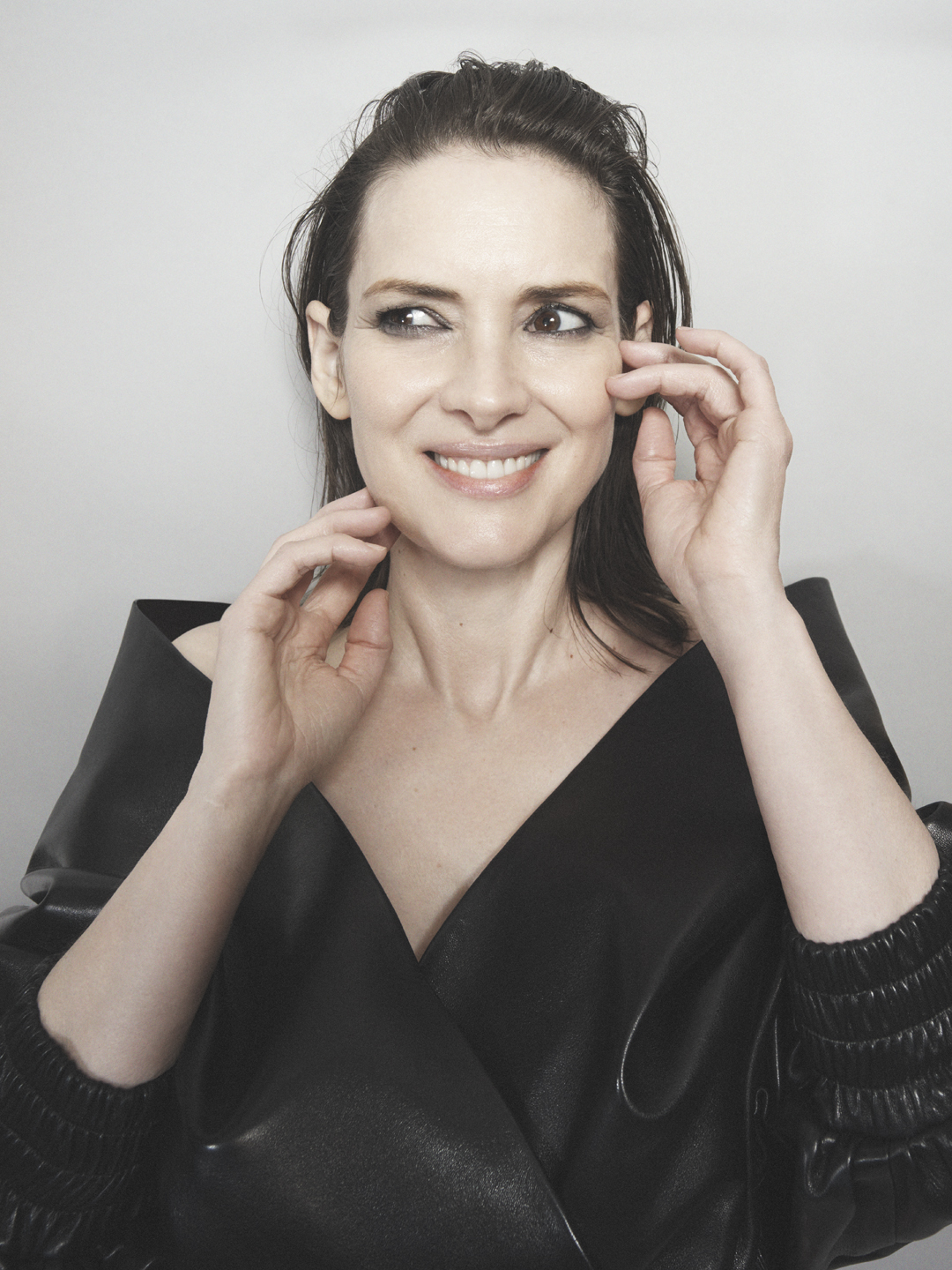
.jpg)
